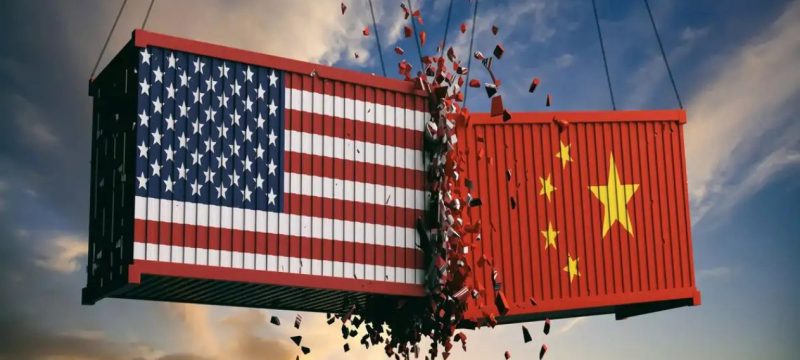Top trade officials from the United States and China met for a second straight day in London on Tuesday, aiming to ease rising tensions over export controls—especially concerning rare earth materials that are vital to global manufacturing and clean energy technologies.
Held at Lancaster House, the discussions build on Monday’s preliminary meeting and follow a tentative agreement reached in Geneva last month. The stakes are high, as recent data from Beijing showed a sharp 34.5% drop in Chinese exports to the US in May—marking the largest monthly decline since the early days of the COVID-19 pandemic.
Read more: Trump says Pakistan trade talks scheduled for next week
While this downturn has yet to significantly impact US inflation or employment figures, economic analysts point to growing pressure on the US dollar amid ongoing uncertainty around Washington’s trade stance.
Leading the American delegation are Treasury Secretary Scott Bessent, Commerce Secretary Howard Lutnick, and Trade Representative Jamieson Greer. China’s team is headed by Vice Premier He Lifeng, a central figure in shaping Beijing’s economic agenda. Lutnick’s role is especially notable due to his department’s oversight of US export controls, signaling that rare earth supply concerns are at the heart of the negotiations.
Notably, Lutnick did not attend the Geneva talks that produced a temporary 90-day truce, which included partial tariff reductions. Although this initially brought relief to markets, optimism faded after Washington accused China of quietly imposing new barriers to rare earth exports.
These trade tensions have already begun to affect global production, with factories in multiple sectors — including EVs, defense, and semiconductors — reporting shortages of critical materials.
The London talks follow a recent phone call between US President Donald Trump and Chinese President Xi Jinping — their first direct exchange since Trump’s inauguration on January 20. During the call, Xi reportedly agreed to resume rare earth shipments to American firms.
Following this, Reuters confirmed that China had issued temporary export licenses to suppliers linked to the three largest US automakers. However, industry insiders remain wary, noting that these permits are politically fragile and may be revoked at any time.
The outcome of the London discussions is being closely monitored by global markets, as it could shape the future availability of rare earths—key components in both green technologies and advanced defense systems.





